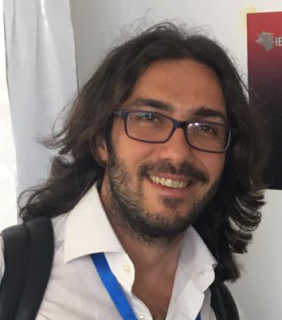The research of Francesco Leotta concerns algorithmic, methodological, experimental and practical aspects in different areas of Computer Science, including ubiquitous computing, human-computer interaction and digital humanities. Such topics are challenged in the application domains of smart spaces, smart manufacturing and cultural heritage.
Since 2010, Francesco Leotta has defined a research project that involves the employment of techniques from machine learning and data mining, specifically from business process management and mining, in order to address the problem of smart space monitoring and automation. Here, the term smart space is intended in the widest sense possible, covering smart homes, factories, museums, smart cities and offices. In particular, the goal of the research project is learning and visualizing human habits and procedures from unlabeled data sources such as sensor logs or even written texts and data tables. These habits can be used for anomaly detection, recommender systems and automation. Notably, the term habit mining has been introduced by Francesco Leotta to describe this area of research.
One of the peculiarities of this research is the attention to usability for both technicians and end users. As witnessed by the success of the NEST thermostat, the main obstacle to the diffusion of smart spaces is easiness of installation and use.
A functioning smart space is based on models. These models must be analyzed and validated by experts of the domain. Thus, one aspect of usability in smart spaces is making the models produced by the system readable to human experts for analysis and inspection. Here, the intuition behind the research of Francesco Leotta is employing established formalisms from the area of Business Process Management (BPM). A second aspect of usability applied to smart spaces is making the deployment of smart space systems easy, reducing the burden of technicians in terms of training. This aspect has been addressed through the massive employment of unsupervised learning techniques.
From the point of view of usability for the end users, Francesco Leotta worked on advanced interfaces for smart spaces based on the employment of mobile applications and chat-bots applied to the context of smart homes, cultural heritage and public administration offices. These advanced interfaces also addressed the problem of accessibility. Part of the research of Francesco Leotta, during the period spent at Fondazione Santa Lucia, has been indeed devoted to enlarging the range of end users that can benefit of a smart space, including people with severe disabilities.
Recently, Francesco Leotta has increasingly focused his attention on the research domain of Industry 4.0. In particular, he is working on the definition of architectures which allow the automatic composition, short- and long-term adaptation of digital twins in industrial contexts thanks to the application of techniques taken from artificial intelligence to the Internet of Things. In addition, this research activity is currently developed in the context of privately funded (Rotalaser Fustella 4.0) and publicly funded (FIRST, ElectroSpindle 4.0) projects.
As collateral results of his research and project activity, Francesco Leotta also published several results in the area of information systems, including works on web services, software architectures and information retrieval.

